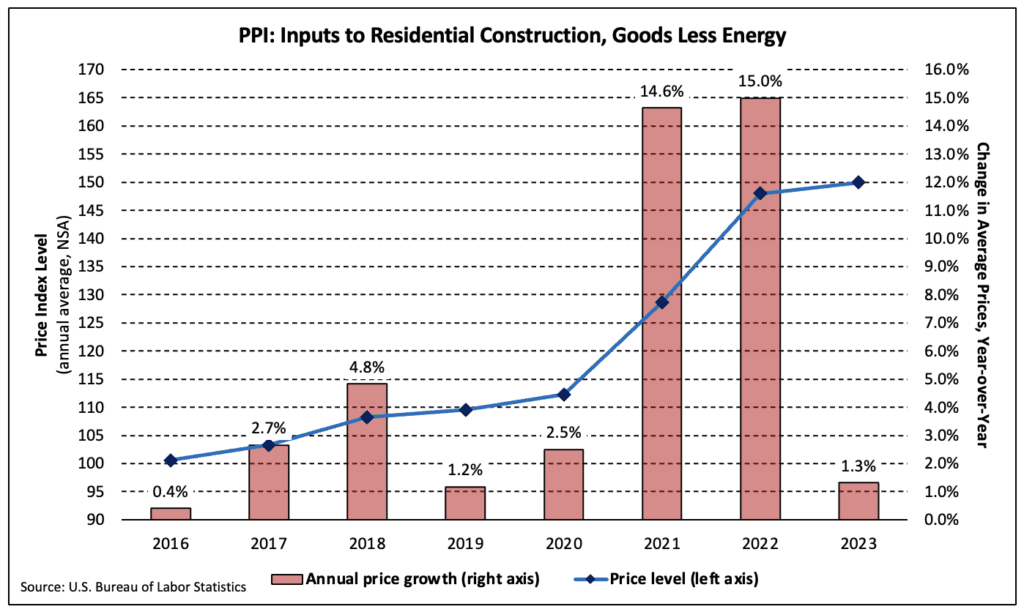The construction sector in Thailand is facing significant financial pressures due to a combination of rising material prices and labor shortages. These factors are pushing up project costs, causing delays, and leading to a contraction in the sector’s growth. Understanding the factors driving these increases in Thailand Construction Costs is crucial. Not only for contractors, but also for developers. As they seek to manage and mitigate the challenges, let’s take a look at this article below.
Rising Material and Thailand Construction Costs

One of the main contributors to the increase in Thailand construction costs is the rising price of construction materials. Over the past year, the price of essential materials like steel and cement has increased by 5-10%. This surge is largely due to global supply chain disruptions, exacerbated by the war in Ukraine, which has affected the availability of raw materials. The Global Construction Materials Price Index recorded a 15% increase in the price of steel and cement in 2022 alone, a figure that has heavily impacted Thailand’s construction industry.
These material shortages are leading to increased costs for both ongoing and planned construction projects. Contractors are finding it difficult to source enough materials, which delays project timelines and inflates budgets. According to a survey by the Thai Contractors Association, 65% of contractors have experienced delays due to material shortages. These delays only add to the financial strain on contractors, who are often forced to absorb the additional costs or pass them on to clients, further increasing the total cost of construction.
Labor Shortages and Rising Wages
Labor shortages are another major factor behind the rising construction costs in Thailand. The International Labour Organization (ILO) reports that there is a 12% shortfall in skilled labor in the country’s construction sector. This lack of skilled workers has created fierce competition among contractors to secure available talent, leading to wage inflation. Over the past year, labor costs have risen by 8-10%, putting additional financial strain on construction companies.
The shortage of labor doesn’t just drive up wages; it also contributes to project delays. With fewer workers available to complete projects on time, many contractors are facing penalties or having to work with less experienced crews, which can affect the quality of the work and further delay project timelines. These challenges are directly contributing to the rise in overall Thailand construction costs.
Inflation and Other Economic Pressures
Inflation is also playing a significant role in increasing Thailand Construction Costs. In 2022, the Bank of Thailand reported that inflation reached 6.1%, driven primarily by rising fuel and energy prices. These inflationary pressures have a direct impact on construction projects, as they increase the cost of transporting materials and operating machinery. For companies that rely heavily on imported materials, the combination of high fuel costs and supply chain disruptions has significantly raised the overall cost of doing business.
As a result of these combined factors, the construction sector in Thailand has contracted. The National Economic and Social Development Council (NESDC) reports that the sector shrank by 2.1% in the first quarter of 2023. This contraction reflects the financial strain on both public and private construction projects, as rising costs lead to reduced spending on infrastructure and other key developments.
Strategies to Manage Rising Thailand Construction Costs
To manage these rising costs, companies are adopting several strategies. One approach is the adoption of more efficient building techniques, such as prefabrication, which reduces reliance on labor and speeds up construction times. Some companies are also exploring alternative materials that are less impacted by global price fluctuations, such as locally sourced products.
Negotiating longer-term contracts with suppliers is another strategy being employed to lock in material prices before they rise further. Contractors are also investing in better project management tools to improve efficiency and minimize delays caused by material shortages and labor constraints. These strategies can help mitigate some of the risks associated with rising Thailand construction costs and keep projects on track.
The rising cost of materials, labor shortages, and inflation are creating significant challenges for Thailand’s construction sector. With construction material costs up by 5-10%, wages rising 8-10%, and project delays affecting 65% of contractors, managing these costs requires a multi-faceted approach. Companies that can innovate, plan ahead, and adopt new technologies are best positioned to navigate these Thailand Construction Costs challenges and ensure the sustainability of their projects in the future.

